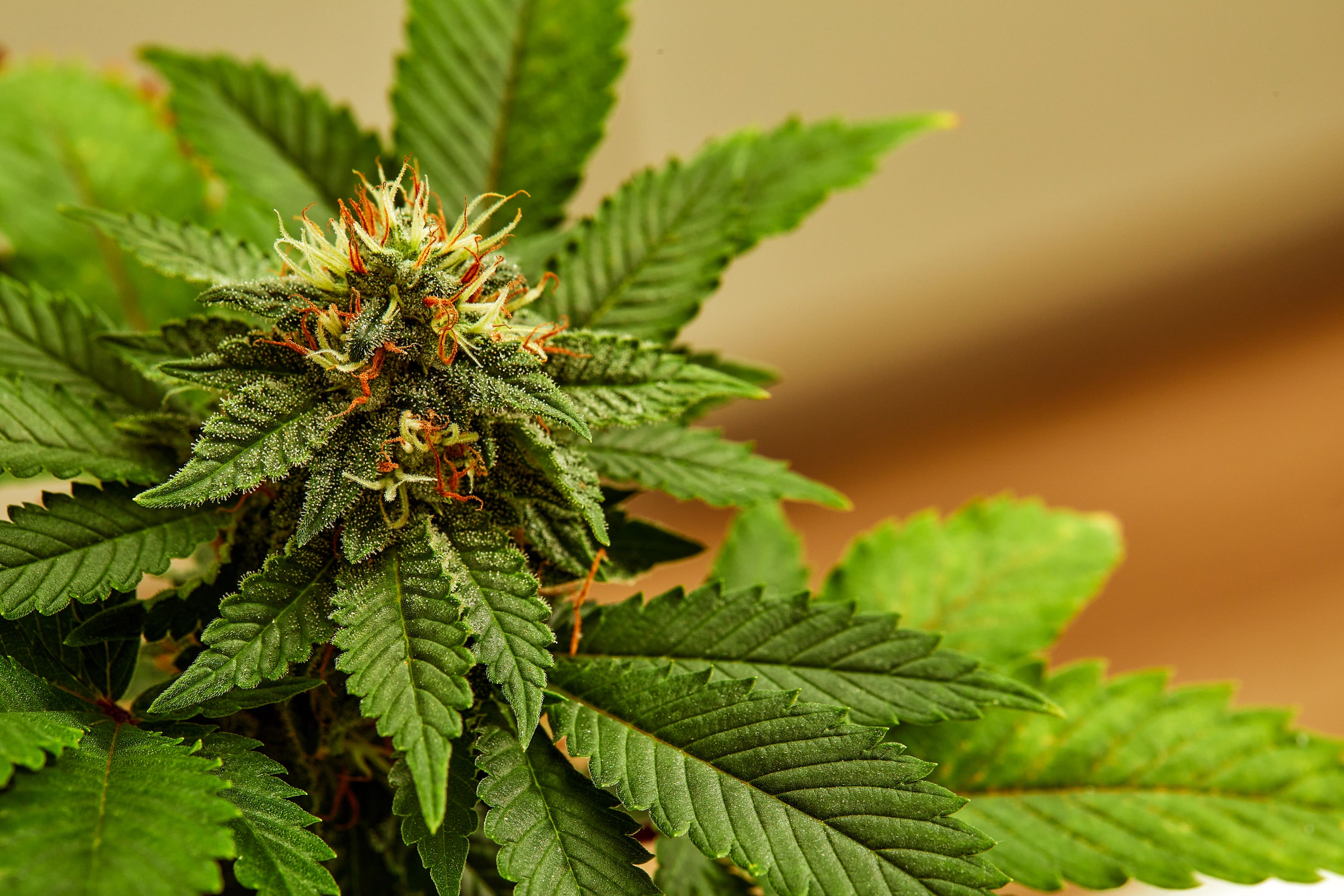
The Potential of Cannabis in Reducing Opioid Use and Managing Withdrawal Symptoms: Insights from a Federally Funded Study
Opioid Crisis and Alternative Pain Management Solutions
The opioid crisis has gripped nations with an iron fist, affecting millions and claiming countless lives. This public health nightmare calls for innovative solutions that can curb addiction rates and manage withdrawal symptoms effectively. As traditional medicine struggles to address the crisis adequately, cannabis emerges as a promising contender in the realm of alternative pain management. For cannabis enthusiasts, public health advocates, and policymakers, exploring the potential of cannabis in tackling opioid dependency is not just intriguing—it's imperative.
In this post, we'll unpack insights from a groundbreaking federally funded study on cannabis's potential to reduce opioid use and manage withdrawal symptoms. This research is a beacon of hope, shedding light on how cannabis could serve as a viable alternative in pain management. From personal anecdotes to policy implications, this comprehensive analysis will inspire action, mobilize change, and advocate for a future where holistic approaches like cannabis therapeutics play a pivotal role in addressing the opioid crisis.
By the end of this article, you'll understand the significant findings of this study, recognize the hurdles in implementing cannabis as an alternative treatment, and appreciate the call-to-action for a collective response to the opioid epidemic. Together, let's explore how cannabis and opioids interact and the potential for change in public health strategies.
Overview of the Federally Funded Study
A federally funded study recently set out to explore the potential of cannabis in reducing opioid usage, bringing a sense of urgency to the ongoing search for alternative pain management solutions. Conducted by leading researchers, this study sought to understand how cannabis could fit into the landscape of therapeutic options designed to combat the opioid crisis. With the support of federal backing, the research aimed to offer an authoritative analysis of cannabis's role in managing withdrawal symptoms and providing effective pain relief.
The study collected data from diverse patient groups, examining the effects of cannabis use on individuals struggling with opioid addiction. Conducted over several years, it involved a combination of clinical trials, patient interviews, and comprehensive data analysis. The focus was not only on the physical outcomes but also on the psychological and social impacts of incorporating cannabis into treatment plans.
This groundbreaking research provides a detailed exploration of how cannabis, when used responsibly and under medical guidance, can act as a powerful tool in the fight against opioid addiction. By targeting both cannabis enthusiasts and healthcare professionals, the study aims to shift perceptions and inspire a more open-minded approach to alternative pain management strategies.
Key Findings and Insights from the Study
The results of the federal cannabis study are both compelling and thought-provoking. One of the key findings highlights cannabis's ability to reduce opioid dependency among various patient groups. Patients who incorporated cannabis into their pain management regimens reported a significant decrease in opioid consumption, suggesting that cannabis may provide the necessary relief without the risk of addiction.
Furthermore, the study revealed that cannabis could effectively manage withdrawal symptoms, making the transition away from opioids more manageable for patients. This insight could have profound implications for public health strategies, offering healthcare providers an additional tool to support patients battling opioid addiction.
Another interesting finding was the diversity in patient responses to cannabis treatment. Different strains and dosages had varying effects, underscoring the importance of personalized treatment plans. The study advocates for further research to fine-tune cannabis therapeutics, ensuring that patients receive the most effective treatment based on their unique needs.
For policymakers and advocates like the American Healthy Alternatives Association, these insights offer a foundation for pushing legislative changes that could expand access to cannabis as a legitimate alternative pain management option.
Current Legal and Social Barriers
Despite the promising findings, significant legal and social barriers persist in utilizing cannabis as an alternative to opioids. Cannabis remains classified as a Schedule I substance at the federal level in the United States, posing challenges for researchers and healthcare providers seeking to explore its therapeutic benefits fully.
Social stigma surrounding cannabis use also deters many from considering it as a viable treatment option. Misconceptions about its effects and potential for abuse continue to cloud public perception, despite growing evidence of its medical benefits. These barriers highlight the need for ongoing education and advocacy to shift societal attitudes towards a more balanced view of cannabis therapeutics.
Organizations like the American Healthy Alternatives Association play a crucial role in breaking down these barriers. By promoting accurate information and supporting initiatives that prioritize patient well-being, they strive to create a landscape where cannabis can be embraced as a legitimate alternative pain management solution.
Personal Stories and Testimonials
Personal stories add a human element to the clinical data and statistics, illustrating the real-world impact of cannabis on individuals battling opioid addiction. Many patients have found relief in cannabis, using it to alleviate pain without the severe side effects associated with opioid medications.
Take, for instance, Sarah, a mother of two who struggled with chronic pain after a car accident. Traditional painkillers left her feeling dependent and disoriented, prompting her to explore alternative options. With the guidance of a knowledgeable healthcare provider, Sarah began incorporating cannabis into her pain management routine. She reports experiencing significant relief without the debilitating side effects, allowing her to return to a more active and fulfilling life.
These personal testimonials underscore the potential of cannabis as a viable alternative for those seeking to break free from opioid dependency. They serve as powerful reminders of the importance of continued research and advocacy in expanding access to cannabis therapeutics.
Implications for Public Health, Industry, and Research
The implications of the federal cannabis study extend far beyond individual experiences. For public health, integrating cannabis into pain management strategies could alleviate the burden of the opioid crisis, offering patients a safer and more sustainable alternative to traditional painkillers.
The cannabis industry stands poised to benefit from these findings, with potential growth in demand for therapeutic cannabis products. By prioritizing product quality and patient safety, industry professionals can build trust and credibility among consumers and healthcare providers alike.
Future research is essential to further explore the nuances of cannabis therapeutics. Continued investment in studies that examine different strains, dosages, and delivery methods will ensure that patients receive the most effective and tailored treatments available.
Call to Action for Policymakers and Healthcare Professionals
Given the significant insights from the federal cannabis study, a collective response is necessary to harness its potential in addressing the opioid crisis. Policymakers must consider revisiting cannabis regulations, facilitating access to cannabis-based therapies for patients seeking alternative pain management solutions.
Healthcare professionals play a critical role in this process, advocating for evidence-based approaches to pain management that prioritize patient safety and well-being. By engaging in open dialogue with patients and staying informed about the latest research, healthcare providers can guide patients towards informed decisions about their treatment options.
The American Healthy Alternatives Association urges all stakeholders to join forces in promoting holistic approaches to pain management, working together to create a future where cannabis and opioids are part of a broader strategy to combat addiction and enhance patient care.
A Plan to Healthier Alternatives
The federal cannabis study offers a glimpse into the promising potential of cannabis as an alternative to opioids in pain management. With insights that span public health, industry, and individual experiences, the study serves as a catalyst for change in how we approach the opioid crisis.
For cannabis enthusiasts, public health advocates, and policymakers, the time for action is now. By remaining open-minded and committed to ongoing research, we can pave the way for a future where alternative pain management strategies are embraced and supported.
Together, let's continue to explore the potential of cannabis therapeutics and work towards a healthier, more sustainable world. Discover how you can support the American Healthy Alternatives Association and be part of the change. Visit our website to view membership options and join us in advocating for a healthier, more sustainable world!
Share
